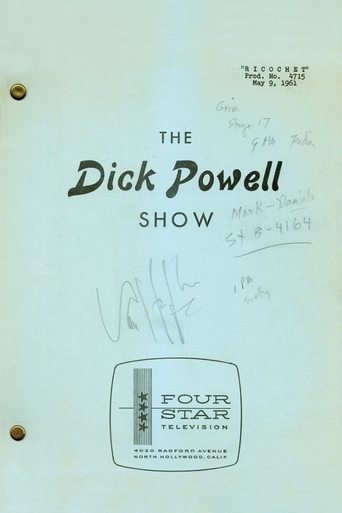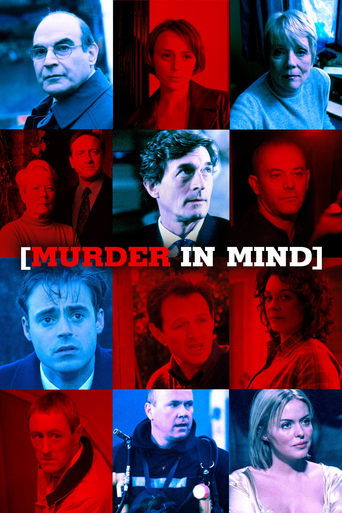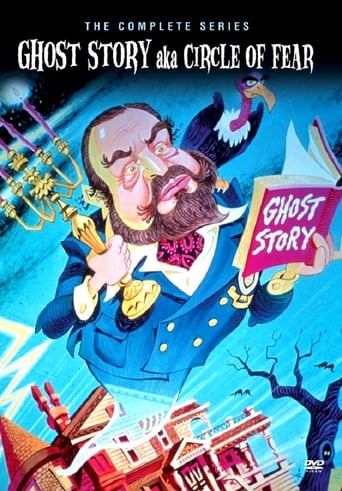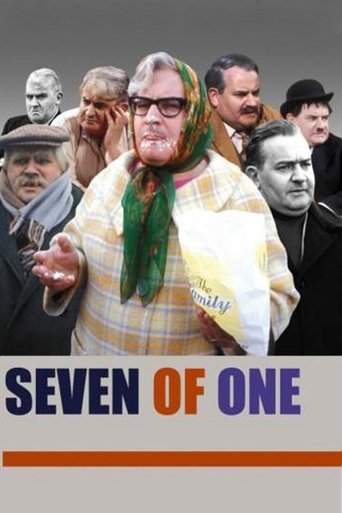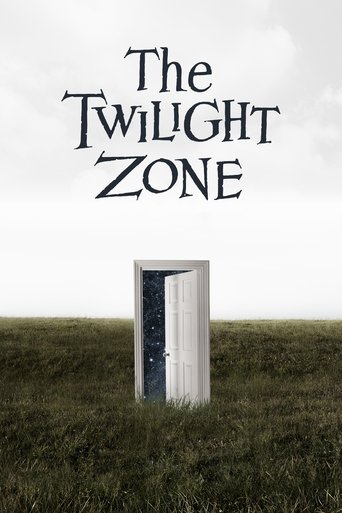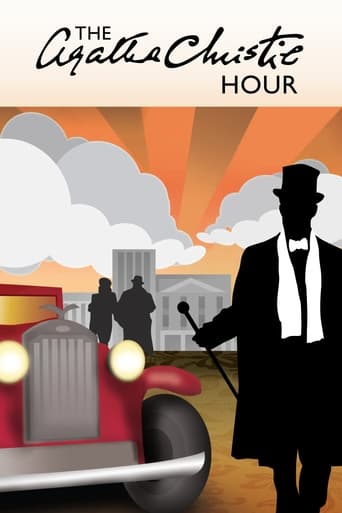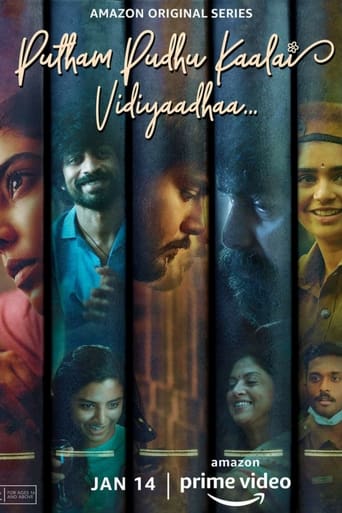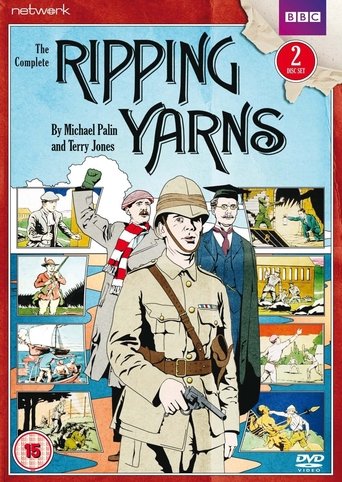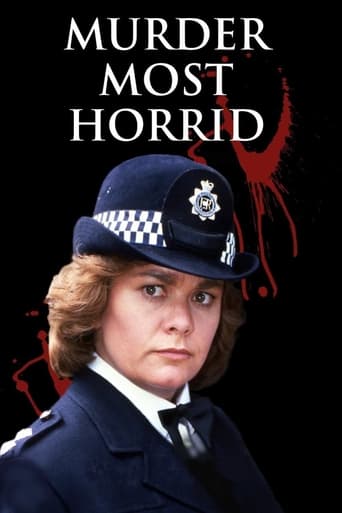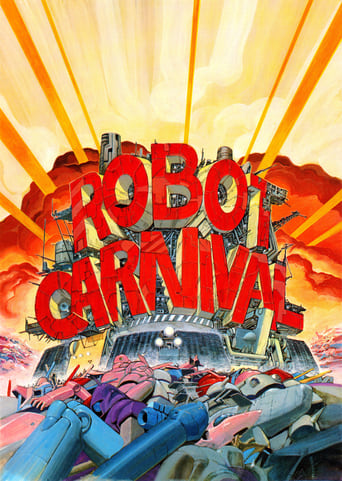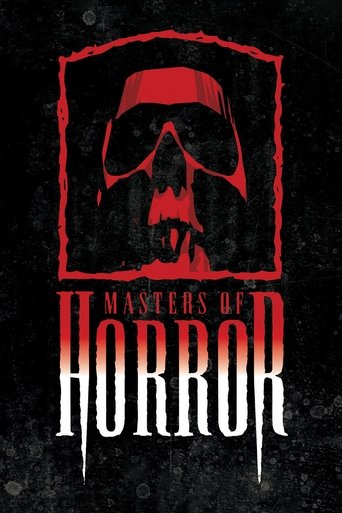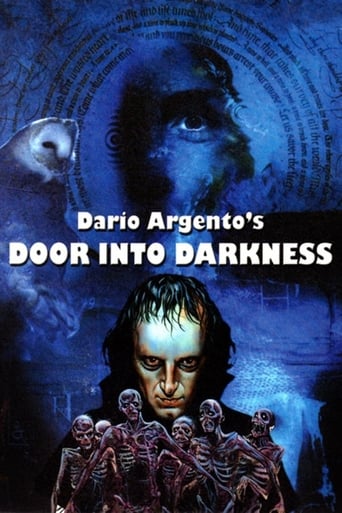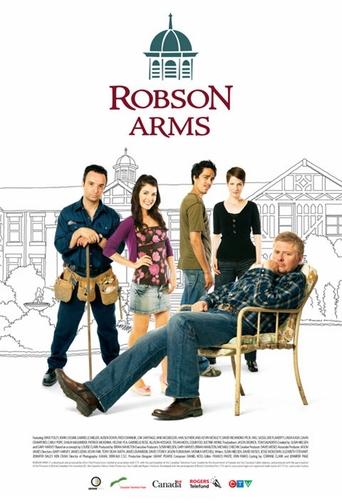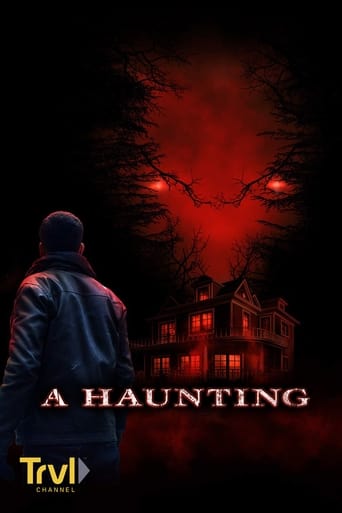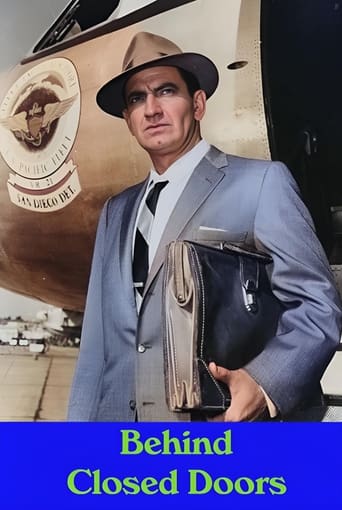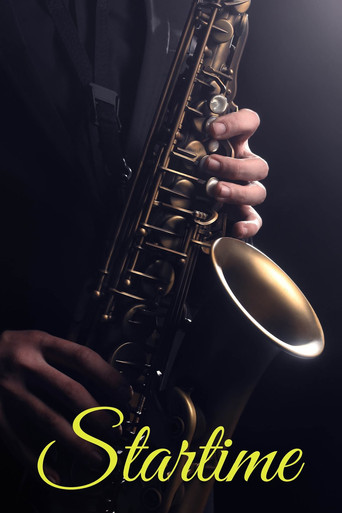
Rating:
6/10 by 2 users
The Dean Martin Show
Songs included: ""It's Jubilee Time"" w/Dean Martin, Frank Sinatra & Mickey Rooney. ""Opening Medley"" Dean Martin, Frank Sinatra and Mickey Rooney. ""When You're Smiling"" Dean Martin and Frank Sinatra. ""I Can't Get Started With You"" Frank Sinatra. ""Rodgers & Hart Medley"" Dean Martin and Frank Sinatra. ""How About You"" Dean Martin, Frank Sinatra and Mickey Rooney.
Writing:
Release Date:
Tue, Oct 06, 1959
Country: US
Language: En
Runtime: 60
Country: US
Language: En
Runtime: 60
Season 1:

Musical variety episode revolving around the music of the 1930s through 1950s, in which the history of show business--including motion pictures, radio, television, and vaudeville--is used as a thread to hold together the songs, sketches, and dances. This series premiere was hosted by Rosalind Russell. Introduction by Rosalind Russell -- 1927 narration with film clips by Russell -- Vaudeville sketch / performed by Polly Bergen, Eddie Foy, and Eddie Hodges -- Talkies movie clips of Greta Garbo and Al Jolson -- Herbert Morrison's radio broadcast on the Hindenburg disaster -- Radio in the '30s / performed by Kate Smith ; with audio clips of Fred Allen, Joe Penner, Edgar Bergen as Charlie McCarthy, Rudy Vallée, and Bing Crosby -- Western ballet / performed by Tommy Rall and ensemble -- Career girl sketch / performed by Russell and Ernie Kovacs -- Hit songs of the '40s (medley) / performed by Smith, Bergen, Foy, and Hodges -- War years comedy monologue / performed by Jack Paar -- Scene fro

In this adaptation of the Rafaelson play, Lewis plays a small time night club comic-singer who is about to get a big break on national television but is at odds with his father who is a Cantor that feels his son is not in the proper vocation. When the father falls ill, Jerry must grapple with filling in for his ailing father or perform on television for his big break.

Dramatic story of a mid-19th century English governess who tries to save her two orphaned charges, Miles and Flora, from torment by the evil ghosts of the former butler Peter Quint and his lover, former governess Miss Jessel.

Based on his book of the same name, Art Linkletter's variety episode pays tribute to children with guests Richard M. and his mother Hannah Nixon; comedian Ed Wynn; motion picture actors Ann Blyth and Vincent Price; child performers Jon Provost of Lassie, Teddy Rooney, and Angela Cartwright of The Danny Thomas Show; the Mitchell Boys Choir; and animal performers Lassie and Jerry. Includes a modern television version of Tom Sawyer, a skit on the importance of the first baby, musical and dance numbers, interviews with children and with Richard Nixon and his mother on the Vice President's childhood, and Vincent Price's talented chimpanzee. Open -- Vincent Price and his chimpanzee Jerry -- Tom Sawyer sketch / performed by Jon Provost, Teddy Rooney, Angela Cartwright, Lassie, Ed Wynn, and ensemble -- Price playing chess with Jerry -- Baby sketch / performed by Ann Blyth, Art Linkletter, and Wynn -- Price and Jerry playing violin -- Tea for Two soft shoe / performed by Wynn and Rooney -- Pr

Songs included: ""It's Jubilee Time"" w/Dean Martin, Frank Sinatra & Mickey Rooney. ""Opening Medley"" Dean Martin, Frank Sinatra and Mickey Rooney. ""When You're Smiling"" Dean Martin and Frank Sinatra. ""I Can't Get Started With You"" Frank Sinatra. ""Rodgers & Hart Medley"" Dean Martin and Frank Sinatra. ""How About You"" Dean Martin, Frank Sinatra and Mickey Rooney.

Dramatic story of middle-aged bank employee Jebal Deeks, who resents having worked for over twenty years at the same bank without a promotion. He abandons an initial scheme to embezzle from the bank when he hears a church sermon on how ""it is more blessed to give than to receive."" Using his own money, Deeks begins to add to the bank's balance, resulting in chaos and an infusion of efficiency experts. Only Deeks is able to bring order to the bank, and advances to vice president in line for the presidency. In the meantime, however, secretary Miss Calhoun has caught on to Deeks' tricks and is using them for her own advancement. When Deeks learns of new discrepancies, he reluctantly turns down the presidency and leaves the bank for good.

Musical variety episode featuring comedians and performers George Burns, Jack Benny, Eddie Cantor, and George Jessel reliving their early days in vaudeville. Augustus J. McCann (Don't Take Me Home) / performed by George Burns -- Give My Regards to Broadway / performed by the Burns Girls -- Burns monologue on youth in show business -- Pals / performed by Eddie Cantor and George Jessel -- Burns monologue -- Hard Ain't it/Molly Dee / performed by the Kingston Trio -- Burns monologue on Jack Benny -- Jack Benny -- Clementine / performed by Bobby Darin -- I Ain't Got Nobody (and sand dance) / performed by Burns and Darin -- Red Rose Rag/Where Did You Get That Girl/Change Your Name to Mine / performed by Burns -- Burns and the Burns Girls -- Dressing room sketch / performed by Burns, Cantor, and Jessel -- Pals / performed by Burns, Cantor, and Jessel -- Grace Allen spot (voice on tape) -- Silvery Moon / performed by Burns.

Musical salute to Ethel Merman's career on Broadway, from her 1930 debut in Girl Crazy to her hit performance in Gypsy. Everything's Coming Up Roses / performed by Ethel Merman, Tab Hunter, Fess Parker, and Tom Poston -- Buckingham Palace guard sketch / performed by Merman and Poston -- Anything You Can Do I Can Do Better / performed by Merman and Poston -- Eadie Was a Lady / performed by Merman and dancers -- TV cowboy sketch / performed by Merman and Parker -- The Girl That I Marry / performed by Parker -- You Can't Get a Man With a Gun / performed by Merman -- You're an Old Smoothie / performed by Merman and Parker -- Blow, Gabriel, Blow / performed by Merman and Bobby Sherwood -- Psychiatrist sketch / performed by Merman and Hunter -- You're Just in Love / performed by Merman and Hunter -- Medley / performed by Merman, dancers, and chorus -- Friendship / performed by Merman, Hunter, Parker, and Poston.

Original comedy about Joe Handers, a country boy who has come to the city to meet a woman. Through a matrimonial bureau, he meets and falls in love with Ruth, who has lied to everyone about her age. Joe, who thinks honesty is of the utmost importance, becomes suspicious and finally forces Ruth to admit her real age, after which Ruth angrily breaks off the relationship. Joe sadly decides to return to the country, but Madden of the matrimonial bureau, determined not to be denied his fee, convinces Joe to patch things up.

A comedy about three convicts in the Devil's Island penal colony in French Guiana who rally to the defense of storekeeper Felix Ducotel and his family, who have befriended them, against a cruel Paris businessman and his nephew, with the help of a friendly but poisonous snake.

Western version of Cinderella with music and lyrics by Conrad Salinger. Stewart is a Yankee peddler in the West; Gobel is a wandering, puckish minstrel, and Miss Smith is a mystical sprite, the stepdaughter of a mean old lady in the correct tradition. The ball is a square dance thrown by the 'prince,' son of a rich rancher, and the gown, slippers, and other accoutrements come from Stewart's wagon. The wagon itself, with some trappings, turns out to be the coach, and Gobel, the footman. Brewer and Burt pull a switch at the end--Miss Smith turns down the rancher's son because she's in love with Stewart, and Gobel turns out to be the 'fairy godmother.'

Magnificat / Johann Sebastian Bach --performed in German by Scola Cantorum with Russell Oberlin. Behold That Star -- The Whole World in His Hands -- O Come All Ye Faithful -- The Infant King -- Good King Wenceslas -- What Child is This? -- Ding Dong Merrily on High -- Hark the Herald Angels Sing -- all performed by Marian Anderson, Boys' Choir, New York Philharmonic.

Musical variety episode starring dancer Cyd Charisse, with guest stars comedienne Eve Arden; dancer James Mitchell; Charisse's husband, singer Tony Martin, and a company of over twenty dancers. Includes Charisse and Mitchell in a dramatic ballet set on the Hong Kong waterfront, involving an ill-fated romance between an Oriental entertainer and a thief; Charisse and Mitchell in a romantic dance story set to Gershwin's Love Walked In; Martin in song and dance numbers with wife Charisse and two featured dancers; and Arden and dancer Ray Kellogg educating coffeehouse beatniks on the dance and music of the flapper generation. Come Away With Me / performed by Cyd Charisse -- Cocktail party/Love Walked In (sketch) / performed by Charisse, James Mitchell, Eve Arden, and dance ensemble -- Tres Chic / performed by Tony Martin, Dana Lorenson, and Diane Frederick -- Baubles, Bangles, and Beads / performed by Charisse and Arden -- For the Very First Time / performed by Charisse and Martin -- Hong

Suspenseful drama of Mrs. Gillis, a kindly widow who has lived alone since the death of her son, and her day of terror at the hands of Howard, a dangerous psychopath she mistakenly hires as a handyman.

Musical and comedy variety episode hosted by comedian Jack Paar, with Paar's ""world"" populated by comedians Jonathan Winters and Alice Pearce, singer Pat Suzuki, dancer Betty Bruce, pantomimist Harry Mimmo, novelty act The Strong Brothers, orchestra leader José Melis, mimic/singer Duke Hazlett, and Paar's daughter Randy. Opening monologue / performed by Jack Paar -- Dancing cows French film clip -- Midget song / performed by Betty Bruce and Strong Brothers -- Italian films / performed by Jack and Randy Paar -- I Remember it Well / performed by Jack and Randy Paar -- The Windo camera (comedy commercial) / performed by Jack Paar -- Skaters film -- Airplane sketch / performed by Jack Paar, Jonathan Winters, and Alice Pearce -- Reader's Digest sketch / performed by Paar, Winters, Pearce, Bruce, Harry Mimmo, and Jack Collins -- College medley / performed by Pat Suzuki and chorus -- Ping pong sketch / performed by Paar -- Piano solo from Moulin Rouge / performed by José Melis -- Prison dis

A comedy about lonely New York City widower Amos who, after going unnoticed all his life, decides to hang himself to ""get a little attention."" Amos and his helpful friend Tom, however, are both aided and obstructed by three strangers who happen upon the scene: poll-taker Peggy, law student Steve, and Peggy's fiancé, Harry. When Tom calls the newspapers to alert them of the upcoming suicide, Amos' plan is further complicated by an invasion of police riot and emergency squads, television cameramen, and members of the clergy of all faiths.

Introduction by Ronald Reagan -- Drum Boogie / performed by Gene Krupa and his band ; sung by Anita O'Day -- Chattanooga Choo-Choo / performed by Tex Beneke and the Modernaires -- South Rampart Street Parade / performed by Bob Crosby and the Bobcats -- Big Noise From Winnetka / performed by Bob Crosby and the Bobcats ; sung by Bob Haggart and Ray Bauduc -- Medley / performed by Guy Lombardo and his Royal Canadians -- Marie / sung by Jack Leonard ; performed by the Tommy Dorsey Orchestra -- One O'Clock Jump / performed by Count Basie and his orchestra -- Reagan and Crosby discuss Glen Gray and his orchestra -- No Name Jive / performed by Glen Gray and the Casa Loma Orchestra -- Tangerine / sung by Bob Eberly and Helen O'Connell -- Caldonia / performed by Woody Herman and the Herd.

Backstage drama of Julie Forbes, a leading Hollywood actress and box office favorite who has used ruthless and vindictive tactics to reach the top and who maintains her popularity in the same manner. After a succession of stereotyped motion pictures, she decides to make a ""quality"" film and hires a young, sensitive director, Cliff Harriston. When he rebuffs her advances, she tries to ruin him by using her power and influence to turn the film into ""just another Julie Forbes picture.""

Musical variety showcase of ""tomorrow's entertainment stars."" Talent scouts, including host Dave Garroway, introduce acts by newly discovered dancers Brascia & Tybee, dancer-actor Paul Wallace, actress Colleen Dewhurst, singer-dancer Lauri Peters, singers Lester James and Joanie Sommers, and vocal group The John LaSalle Quartet. Opening by Dave Garroway -- Maureen O'Hara introduces Brascia & Tybee -- Dance (mambo?) / performed by John Brascia and Tybee Afra -- Richard Rodgers introduces Lauri Peters -- Sixteen Going on Seventeen / performed by Peters -- Hugh Downs introduces Lester James -- Hey There / sung by James -- Ethel Merman introduces Paul Wallace -- Dance number (from Gypsy?) / performed by Wallace -- Tommy Sands introduces Joanie Sommers -- What's New / sung by Sommers -- Joan Crawford introduces Colleen Dewhurst -- Sleepwalking scene from Macbeth / character of Lady Macbeth performed by Dewhurst -- Garroway introduces John LaSalle Quartet -- Clementine / performed by John

Civil War drama that takes place within the twenty-four hours of April 17, 1865, in and around the Tressler farm in Missouri. There was scattered fighting in the closing days of the Civil War after Lee surrendered at Appomattox. A Confederate soldier, Captain Jeff McCleod, has been wounded and left for dead on a small Missouri battlefield. He is found by Jannie, a 15-year-old Yankee boy, and brought home to a household of women who, reluctantly, hide McCleod in the cellar and lie about his presence to a search party of Union soldiers led by Lt. Train. Also nearby, the tattered remains of McCleod's regiment search for him and finally discover his whereabouts. Although word reaches both sides that the war has ended, neither Confederate nor Union troops can avoid a last battle in the farmyard--a pointless skirmish that pits McCleod against his close friend Geraldi.

Musical salute to the post-World War II era of big bands and vocalists, when many former band vocalists became singing stars and the swing bands began to play for audiences of listeners instead of dancers. Sequel to the 2/9/60 Ford Startime episode, ""The Swingin' Years,"" which covered the big swing bands of the Thirties. Introduction by Ronald Reagan -- Apple Honey / performed by Woody Herman and the Herd -- Your Father's Moustache / performed by Herman and the Herd -- Cow Cow Boogie / sung by Ella Mae Morse ; performed by Freddie Slack and his orchestra -- Tonight We Love / performed by Freddy Martin and his orchestra -- Bumble Boogie / performed by Martin's pianist, Jack Fina -- The Gentleman is a Dope / sung by Jo Stafford ; performed by Red Ingle and the Natural Seven -- Temptation / sung by Stafford as ""Cinderella G. Stump"" ; performed by Ingle and Natural Seven -- Careless / performed by Eddy Howard and his orchestra -- To Each His Own / performed by Howard and orchestra -- Wha

Musical variety episode featuring Academy Award winning songs from years past and the five songs nominated for the Oscar from films released in 1959. Includes a production number to The Continental and a ballet to Three Coins in the Fountain choreographed by Hermes Pan. Writers of the five nominated songs are also introduced. Opening by Jane Wyman -- The Continental / production number performed by ensemble -- Love is a Many-Splendored Thing / performed by the Four Aces -- Zip-A-Dee-Doo-Dah / performed by Kay Starr -- The Way You Look Tonight / performed by Starr -- You'll Never Know / performed by Starr -- Sylvia / performed by Charles Laughton -- The Last Time I Saw Paris / performed by Laughton -- Swinging On a Star / performed by Starr and Wyman -- Three Coins in the Fountain / performed by the Four Aces ; danced by Becky Vorno and Buddy Bryan -- Mona Lisa / performed by Nat King Cole -- In the Cool, Cool, Cool of the Evening / performed by Cole -- Lullaby of Broadway / performe

A comedy about sophisticated international rogue Fred Cortin, who has devoted a lifetime to the study and practice of imaginative confidence games. When he encounters his divorced, wealthy daughter, Edith Brooks, on the French Riviera, he devises a plan to protect her from a rash of unwanted suitors by creating a husband for her who doesn't exist. As the moneyed international set in Monaco and along the Riviera--led by Emerald Dane--tends to its fun and games, Cortin sets about achieving his greatest deception. He manages to dupe all the Riviera's social elite--including Edith's leading suitor Robert--into believing that his daughter is a countess, married to the ""very jealous, international explorer and adventurer"" Count Arthur de Ghuye. Cortin becomes obsessed with his creation, however, with disastrous results.

An adaptation of the legend about the juggler who pays his debt to Our Lady by juggling before her statue.

Vera Miles plays the daughter of a man accused of an unspeakable act. Hitchcock tells a powerful story of the devastating effects of gossip in a small town. Through his most elaborate and ambitious work for television, Hitchcock sensitively shows the cancerous effects, the pain and tension arising from false accusation.

Nonpartisan presentation that illustrates in prose, poetry, dance, song, comedy, and ""straight talk"" why every American is obligated to vote and should take advantage of their privilege of voting. Post election sketch / performed by Eddie Albert and ensemble -- Vice President Richard M. Nixon speaks on voting, quoting Theodore Roosevelt -- Trial lawyer Joseph N. Welch gives statistics on voting percentages, tells story -- Adlai Stevenson reads Walt Whitman editorial from Brooklyn eagle, ""One single vote"" -- Medley of patriotic American songs / performed by First United States Army Band -- New York Governor Nelson Rockefeller quotes Abraham Lincoln -- Political quiz sketch / performed by Albert and Polly Bergen -- Democratic National Committee chair Paul M. Butler quotes Theodore Roosevelt -- Republican National Committee chair Thruston B. Morton quotes Herbert Hoover and Benjamin Franklin -- Candidate interview sketch / performed by Mike Wallace and Fred Clark -- Presidential candida

Musical salute to the USO--United Service Organizations--on its 20th anniversary of providing recreation and entertainment for millions of American servicemen in far-flung lands. Includes musical numbers, dance, a brief filmed tribute by former President Harry S. Truman, and a film segment of famous stars in the service of the USO, including Bob Hope, Lucille Ball, Marilyn Monroe, Danny Kaye, Debbie Reynolds, Betty Hutton, Jack Benny, Donald O'Connor, Al Jolson, and Joe E. Brown. Introduction by Bob Crosby -- You'd Be So Nice To Come Home To / performed by Jane Morgan -- Shoo-Shoo Baby / performed by Paula Kelly and the Modernaires -- Wing and a Prayer / performed by Kelly and the Modernaires -- Don't Sit Under the Apple Tree / performed by Crosby and Morgan -- They're Either Too Young or Too Old / performed by Morgan -- In My Arms / performed by Crosby, Morgan, and the Modernaires -- Tribute to Glenn Miller medley (Kalamazoo/Moonlight Cocktails/Chattanooga Choo Choo) / performed by

A salute to American county fairs. Opening / performed by Celeste Holm -- Howdy Neighbor / sung by Holm and chorus -- Gossip bit / performed by Holm, Jaye P. Morgan, Peter Palmer, and ensemble -- Make the Man Love Me / sung by Morgan -- Telephone bit / performed by Holm, Morgan, and Palmer -- Folks Who Live on the Hill / sung by Palmer -- Together, Wherever We Go / performed by Holm, boy, and ensemble -- The Farmer and the Cowman / danced by ensemble -- How I Love a County Fair / performed by Holm, Morgan, Palmer, and ensemble -- Magic act / performed by The Great Ballantine -- Happy Habits / sung by Holm -- Baubles, Bangles and Beads / performed by Wisa D'Orso -- Pie contest sketch / performed by Holm, Cliff Arquette as Charlie Weaver, and Margaret Hamilton -- Darn it Baby, That's Love / sung by Morgan and Palmer -- Turkey in the Straw Cha-Cha / performed by Holm, Palmer, Morgan, D'Orso, Arquette, Hamilton, and ensemble -- Where Did the Time Go / sung by Holm.

Tennessee Ernie Ford finds that chivalry and knighthood were a lot of bunk when scientists, with the aid of a time machine, transport him back to 6th century Camelot. He is befriended by Clarence but captured by Sir Bors, a Knight of the Round Table, and taken to the court of King Arthur. In addition to his disillusionment about knighthood, Ford is condemned to death at the stake by Merlin the Magician. Ford resorts to hill-folk magic of his own by consulting his Farmer's almanac and predicting a solar eclipse on the scheduled date of his execution. This proves enough for King Arthur, who frees Ford from the stake and elevates him to high rank in the court. Ford must still accept a challenge, however, before he is transported back to the 20th century.

Musical variety episode featuring conductor and arranger Mitch Miller's popular ""Sing Along With Mitch"" format adapted from record albums for television. Miller and guests invite participation from the audience in the sing-along segments. Opening segment: Sing Along, Heart of My Heart, Do-Re-Mi -- Twenties segment: Singin' in the Rain, All I Do is Dream of You, Toot Toot Tootsie Goodbye, Pretty Baby, Bumble Bee, Baby Face, It's Three O'Clock in the Morning -- I'm Just a Little Sparrow in the Nest of the Lord / performed by Leslie Uggams -- Block party segment: The Children's Marching Song, School Days, Sweet Rosie O'Grady, Sidewalks of New York, The Band Played On, Oh, You Beautiful Doll, Beer Barrel Polka -- A Guy is a Guy / performed by Diana Trask -- Soldier segment: My Buddy, Hinky Dinky Parlez-vous, There's a Long, Long Trail, Give My Regards to Broadway -- Greenfields / performed by the Brothers Four -- Bouncing ball segment: Let Me Call You Sweetheart, A Bicycle Built for Two,

Original musical starring Nanette Fabray. Sally is a waitress in Ernest's diner. Ernest earnestly wants to marry her, but Sally isn't content to go on slinging hash. She fantasizes being the famous Marie Antoinette and Pocahontas, and swears to the goddess Aphrodite that she will be like those celebrated women of history. Musical numbers include ""Save a Place on the Wall for Me,"" ""Po-Po-Pocahontas,"" and ""Who Needs It?,"" performed by Fabray, and ""You've Got to Keep a Woman in the Right-Hand Lane,"" sung by Stubby Kaye. Music by Jack Brooks, lyrics by Brooks and Danny Arnold. Axel Stordahl was the musical director.

